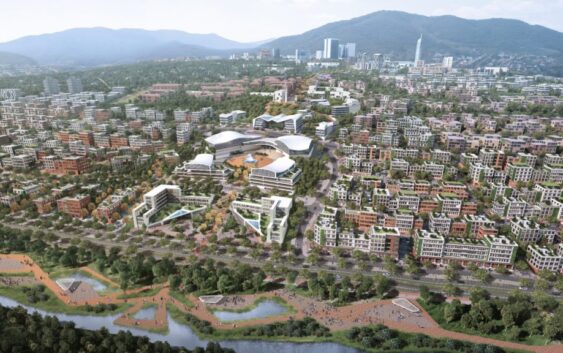KIGALI CITY WETLAND MASTER PLAN TO GENERATE OVER US$155M ANNUALLY

The implementation of the Kigali City wetland master plan would generate over US$155 million annually, a new study has found. The study dubbed “Economics of Kigali City Wetland Ecosystem Services” was carried out by environmentalists from the Albertine Rift Conservation Society (ARCOS).
Arcos is a regional conservation organization with a mission to enhance biodiversity conservation and sustainable management of natural resources in the Albertine Rift region, Africa Great Lakes region, and African Mountains through the promotion of collaborative conservation actions for nature and people.
The study shows that the important provisioning ecosystem services that support local city dwellers with income and livelihoods include crop farming, papyrus, and papyrus products, grass harvesting, and brick making.
Other ecosystem services of importance include flood control, sediment control, water purification, habitat for biodiversity, tourism and recreation, and carbon storage and sequestration.
There are about 37 interconnected wetlands in Kigali City with a total area of about 9, 160 hectares or about 12.5 percent of the city’s land mass.
The current economic value of the wetlands ecosystem services on 9,160 hectares is $74.2 million, the study shows.
If nothing changes on the current status, the study says the Kigali City wetland complex will accumulate a net present value loss in terms of ecosystem services worth over $1.8 billion by 2050.
The cumulative economic benefits of the ecosystem services in that Kigali City wetland complex over the next 30 years are valued at slightly above US$ 2 billion with the effective implementation of the wetland master plan.
Under the Kigali City Wetland Master Plan, 3,888 hectares are reserved for conservation. Some other 3,851 hectares of wetlands are for sustainable use, and the remaining 1,421 hectares of wetlands are for tourism and recreation.
An improvement in agricultural outcome for Kigali City could generate an annualized benefit of over $US 10 million over the implementation of the Kigali City wetland master plan and potentially keep 14 thousand households in employment.
Products from papyrus and other related grasses will result in an annual incremental benefit worth $228,000 above the current levels, the study shows.
Water purification function for use by downstream communities would offer an annual incremental economic benefit valued at $8.9 million while sediment control would result in an improvement and offer an annual incremental net benefit of $8 million.
Flood control for disaster mitigation would result in an annual incremental value of $17 million as carbon storage and sequestration for climate change mitigation would have an annual incremental benefit over the current management worth $113 million.
Habitat for biodiversity conservation value will have an incremental benefit over the current practice worth $16.9 million annually while tourism and recreation would result in an annual net benefit of over $800 thousand over the current business as usual scenario.
The study has recommended investments in regular data collection to help in keeping track of the flow of the ecosystem services provision.
“The Kigali City wetland master plan should be implemented over the status quo since it will generate more than $155 million annually over the business-as-usual scenario,” it says.
Mitigation measures for the losses and damages, and investing in the wetland as a carbon sink for climate change mitigation are among the recommendations.
SOURCE: Newstimes

